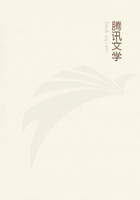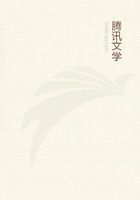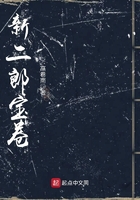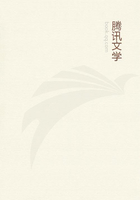Later Attempts in Georgia.
1740.
May 18th, 1740, John Hagen arrived in Savannah.He had come over intending to go as missionary to the Cherokees, and his disappointment in finding that the Moravians had abandoned Georgia is another example of the enormous difficulty under which mission work was conducted in those days, when the most momentous events might transpire months before the authorities at home could be apprised of them.
Hagen had become very ill on the way from Charleston to Savannah, and with none of his own people to turn to he bethought himself of Whitefield's offers of friendship, and went to his house.
He was kindly received by those who were living there, and though he went down to the gates of death the portals did not open, and he rapidly regained his health.
Visiting Irene he found only a few Indian women, for Tomochichi was dead, and the men were all on the warpath.The opportunity of going to the Cherokees seemed very doubtful, for there were none living nearer than three hundred miles, and distances looked much greater in the Georgia forests than in his own populous Germany.
So he concluded to accept the kind offers of Whitefield's household, and stay with them, making himself useful in the garden, and doing such religious work as he was able.Several Germans living in the town, who had learned to like the Moravians, asked him to hold services for them, to which he gladly agreed.
He was much pleased with the prospect for work in Savannah, where the people had been greatly stirred by Whitefield's preaching, and he wrote to Herrnhut urging that two married couples be sent to help reap the harvest, a request warmly seconded by Whitefield, who had returned to Savannah on June 16th.Whitefield reported the Moravians busily engaged in erecting a Negro school-house for him in Pennsylvania, and told Hagen he would like to have the two couples come to assist him in carrying out his large plans for Georgia.
But by the 14th of August this invitation had been withdrawn, Hagen had left Whitefield's house, and had been refused work on Whitefield's plantation, for fear that he might contaminate the Whitefield converts.
The trouble arose over a discussion on Predestination, --not the first or last time this has happened, -- and the two men found themselves utterly at variance, for Whitefield held the extreme Calvinistic view, while Hagen argued that all men who would might be saved.Hagen therefore went to the home of John Brownfield, who shared his views, and made him very welcome, and from there carried on his work among the residents of Savannah and Purisburg.
Whitefield returned to Pennsylvania in November, 1740, nursing his wrath against Hagen, and finding Boehler to be of the same mind, he peremptorily ordered the Moravians to leave his land.Neighbors interfered, and cried shame on him for turning the little company adrift in the depth of winter, and he finally agreed to let them stay for a while in the log cabin which was sheltering them while they were building the large stone house.The opportune arrival of Bishop Nitschmann and his company, and the purchase of the Bethlehem tract, soon relieved them from their uncomfortable position, and later the Nazareth tract was bought from Whitefield, and the work they had begun for him was completed for their own use.
Whitefield, in after years, rather excused himself for his first harshness toward the Moravians, but a letter written by him to a friend in 1742, is a good statement of the armed truce which existed among the great religious leaders of that day."Where the spirit of God is in any great degree, there will be union of avail, tho' there may be difference in sentiments.This I have learnt, my dear Brother, by happy experience, and find great freedom and peace in my soul thereby.
This makes me love the Moravian Brethren tho' I cannot agree with them in many of their principles.I cannot look upon them as willful deceivers, but as persons who hazard their lives for the sake of the Gospel.
Mr.Wesley is as certainly wrong in some things as they, and Mr.Law as wrong also.Yet I believe both Mr.Law and Mr.Wesley and Count Zinzendorf will shine bright in Glory.I have not given way to the Moravian Brethren, nor any other who I thought were in the wrong, no, not for one hour.But I think it best not to dispute when there is no probability of convincing."Hagen remained in Savannah until February, 1742, when he went to Bethlehem, accompanied by Abraham Bueninger, of Purisburg, who entered the Moravian ministry in 1742, and labored among the Indians, the white settlers, and in the West Indies.
Nine more residents of Georgia followed the Moravians to Bethlehem in 1745, John Brownfield, James Burnside and his daughter Rebecca, Henry Ferdinand Beck, his wife Barbara, their daughter Maria Christina, and their sons Jonathan and David, all of Savannah, and Anna Catharine Kremper, of Purisburg.All of these served faithfully in various important offices, and were valuable fruit of the efforts in Georgia.
John Hagen was appointed Warden of the Nazareth congregation, when it was organized; and died at Shamokin in 1747.
1746.
General Oglethorpe was much impressed by the industry of the Moravians in Savannah, and was sorry to see them leave the Province.In October, 1746, therefore, he proposed to Count Zinzendorf that a new attempt should be made further up the Savannah River.He offered to give them five hundred and twenty-six acres near Purisburg, and to arrange for two men to be stationed in Augusta, either as licensed Traders, for many Indians came there, or as Schoolmasters.
Zinzendorf thought well of the plan, and accepted the tract, which Oglethorpe deeded to him Nov.1st, 1746, the land lying on the Carolina side of the Savannah River, adjoining the township of Purisburg, where Boehler and Schulius had made many friends.















